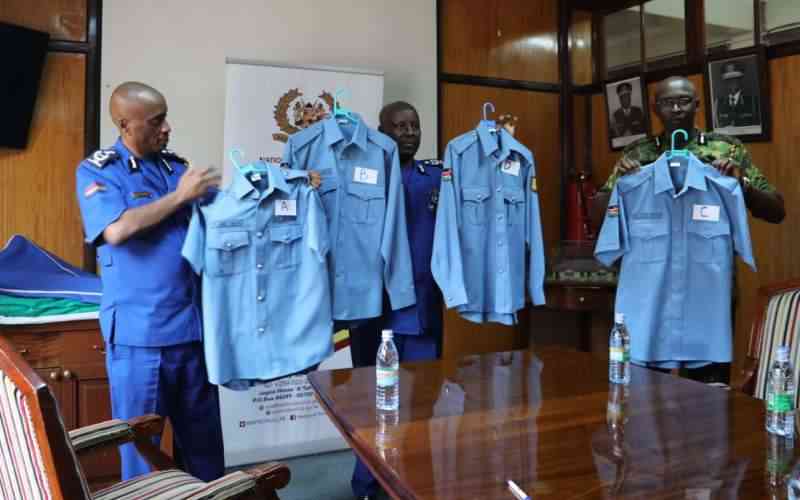The National Police Service (NPS) is scheduled to conduct public participation on proposed changes in police uniforms.
According to a post by the NPS on Tuesday, August 29, the exercise will run for three days, and at different locations each day.
“The National Police Service kindly invites members of the public to participate in the selection process for the proposed Kenya Police Service uniform.” the post read.
“The exercise will be held as scheduled below August 29, 2023 - Kenya Police Pavilion, South C, Nairobi. Wednesday, August 30, 2023 - Central Region at Ruring'u Police Training College Thursday, August 31, 2023, at National Police College-Main Campus Kiganjo."
The changes have elicited mixed reactions among netizens, with a section lauding the move, as others called for the removal of pockets to control bribe collection by rogue officers.
“We do not need the police to change their uniform every two years. We need them to change their attitude and work on their work ethic which is sub-zero,” a Twitter user wrote.
“Police uniform should not have pockets,” another user, Geoffrey Wageni, opined.
The proposed uniform has the same colour as the previous uniform which was phased out during the tenure of former Interior Cabinet Secretary.
If the changes are successfully implemented, the officers will go back to wearing sky-blue shirts with navy blue pants as before.
However, the changes will incorporate a few modifications like the national flag and police service logo on the arms. By Winfrey Owino, The Standard






